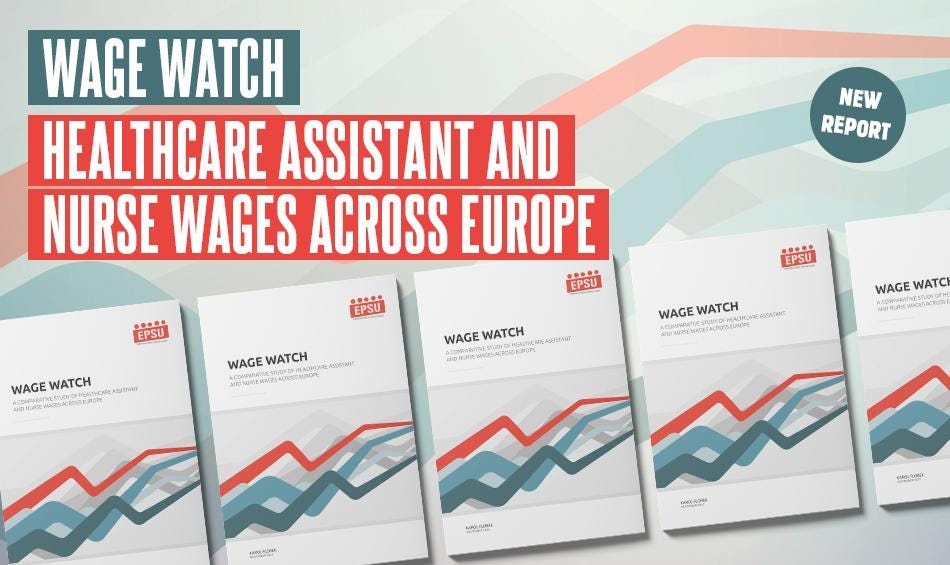
Healthcare assistants are a crucial part of Europe’s health systems, yet their wages remain among the lowest in the sector. A new report by the European Federation of Public Service Unions (EPSU) reveals alarming disparities in pay, with wages falling behind inflation amid skyrocketing living costs. Combined with increasing workloads and task shifting, this creates an extremely precarious situation for workers.
In a comparison of 15 European countries, EPSU’s researchers found worrying disparities in healthcare assistants’ salaries, with wages varying by as much as four times between different countries. In Germany, an assistant’s median hourly wage is approximately €20. In Romania, it is less than €5. Romania stands out as an extreme case, with the report noting that even degree-qualified nurses earn, on average, 22% less than the national median wage. This wage gap offers a clear illustration of the reasons behind Romania’s struggle with health worker brain drain.
The issue is not just the international disparities in wages. Salaries for healthcare professionals often fall well below average and median national incomes. In some cases, such as in England, Ireland, and Spain, some healthcare assistants are paid as little as the national minimum wage. Despite this, they are tasked with important responsibilities, including assisting with patients’ personal hygiene, helping with meals, and even monitoring vital parameters.
Many of these responsibilities were originally part of nurses’ workloads but have been transferred to assistants as part of a broader trend toward “task shifting.” Mainstream health policy analysts often view task shifting as a way to redistribute workloads within a decimated workforce. However, when it comes to employers and policymakers, task shifting appears to be equated with the expectation that workers will take on more tasks with significantly less training and pay than before. For example, in England, healthcare assistant training can take as little as one month, compared to the three years required to become a nurse.
According to Can Kaya from EPSU, there is another important aspect of task shifting that cannot be overlooked when discussing health workers’ rights. While it is often presented as a technical solution to a real problem, in practice, it frequently ends up becoming a measure to cut corners – and costs – when developing health workforce plans. “It means shifting tasks to lower-paid workers in order to save expenses,” Kaya explains. As a result, healthcare assistants find themselves trapped at the intersection of workforce shortages and austerity.
The presence of trade unions can help in this situation, addressing both salary levels and workloads across sectors. If unions are present, even in the private sector, the wage gap tends to get less pronounced, explains Can Kaya. For instance, the situation is different between select Scandinavian countries, where solid unionization rates in private institutions help narrow wage gaps, and Italy, where trade unions are still stronger in the public sector.
In some cases, healthcare assistants in the public sector can earn 30% or more than their counterparts in private institutions, which are spreading across Europe. The largest differences between public and private wages are observed, in addition to Italy, in Ireland, Spain, and Cyprus. This highlights another factor contributing to wage disparities, as Kaya explains: “The private sector is a business, with the goal of maximizing profit, which it achieves by paying workers less. Commercialization is a driver of lower wages.”
The situation faced by healthcare assistants today highlights the failures in Europe’s health workforce strategy. “The current staffing crisis is a national as well as a European crisis,” says Kaya. While national governments have a responsibility to protect the health and care sectors, Kaya emphasizes that the European Union must also take action, including revising its fiscal rules. “Austerity will only exacerbate the existing staffing crisis,” he warns. More decisive action and investment at all levels of European governance are essential to stop staff shortages and ensure safe staffing levels.




